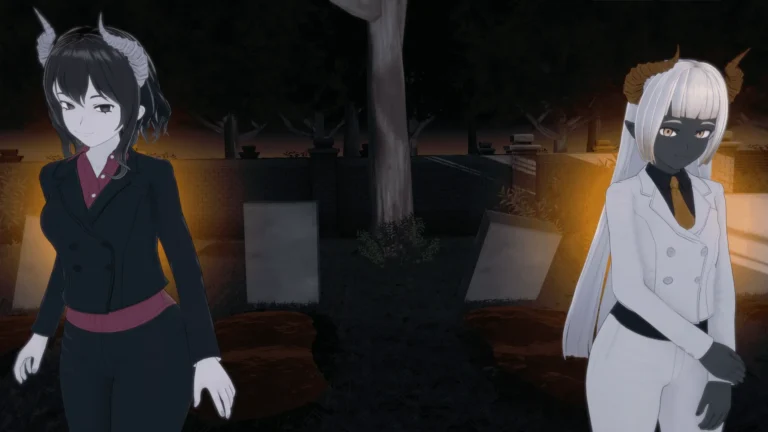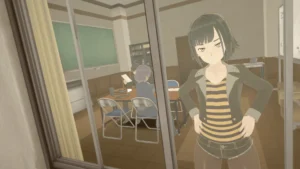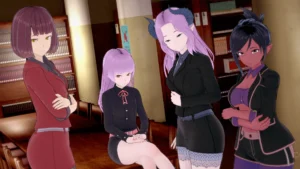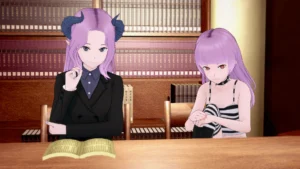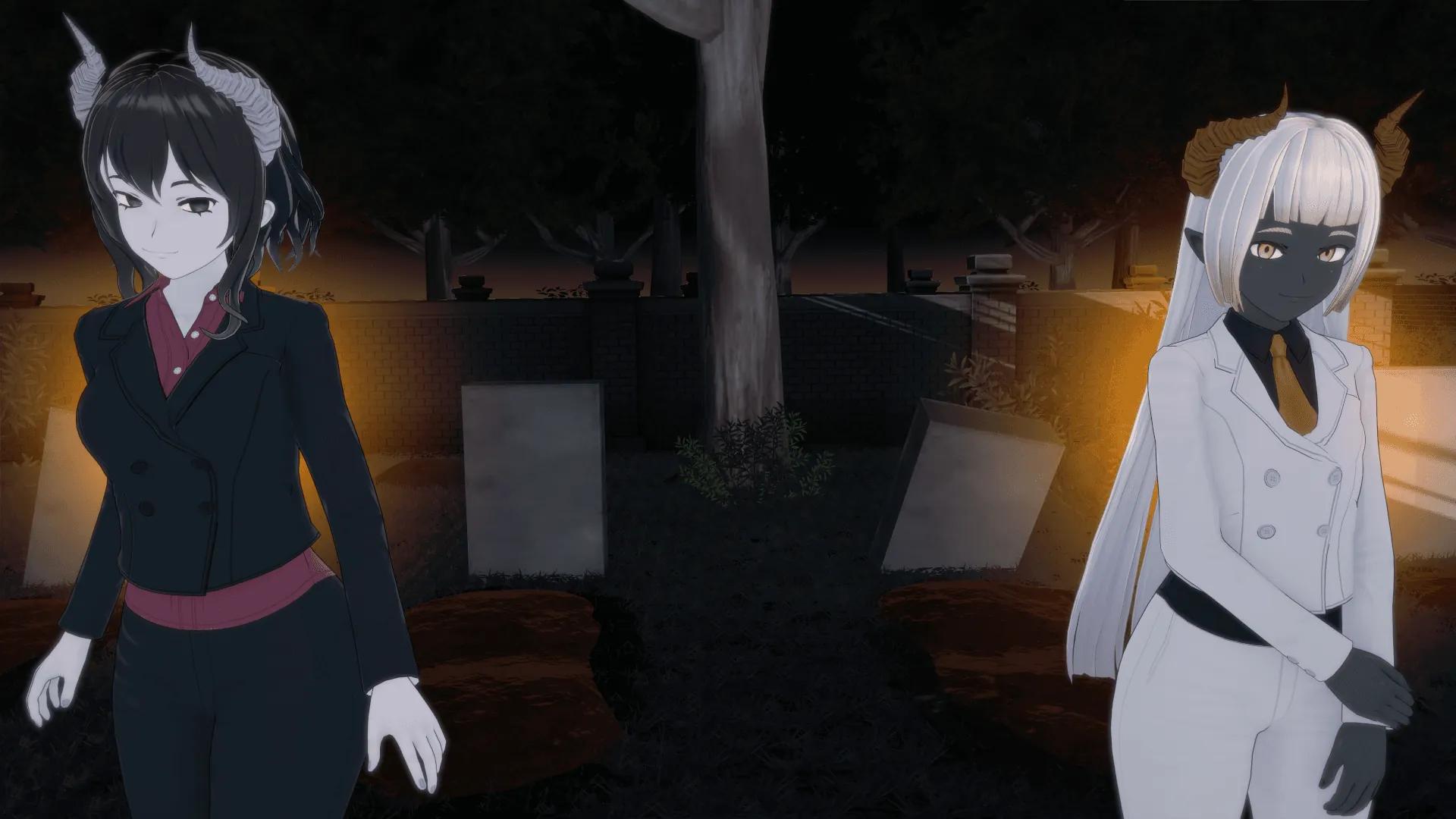
Demons of the Hearth
Play Demons of the Hearth
Demons of the Hearth review
Explore the Story, Characters, and Gameplay of Demons of the Hearth
Demons of the Hearth is a captivating interactive game that blends rich storytelling with immersive character development. This article dives into the core elements of Demons of the Hearth, exploring its narrative depth, gameplay style, and what sets it apart in its genre. Whether you’re curious about the plot, the characters, or how the game plays, this guide offers a comprehensive look to help you decide if this game is the right fit for your gaming experience.
What Makes Demons of the Hearth Unique?
Let me tell you about the first time I realized Demons of the Hearth was something special. I was an hour into playing, and I found myself just… sitting there. Not stuck on a puzzle, not grinding for experience points, but genuinely thinking about a choice the game had presented me. It wasn’t about good or evil; it was about a simple, painful family disagreement. That’s the magic of this interactive storytelling game—it gets under your skin in the most personal ways. 🕯️
So, what exactly makes this experience stand out in a sea of narrative-driven games? It’s the profound connection between its world, its people, and the choices you make. Let’s pull back the curtain.
Engaging Storyline and Worldbuilding
The Demons of the Hearth story isn’t about saving the world from a cataclysmic event. It’s about saving a home, a family, and ultimately, yourself, from the quiet apathy and resentment that can fester over years. 🏚️➡️🏠
You step into a beautifully dilapidated old house, inherited from a relative you barely knew. The core of the Demons of the Hearth story is the restoration of this house, but that’s just the surface level. Each repaired floorboard and cleaned window is a metaphor for healing the fractured relationships with the characters who drift in and out of its rooms. The narrative unfolds not through cutscenes, but through environmental details—a dusty photograph, a half-finished letter, the specific way a chair is positioned at the dinner table.
The brilliance of this Demons of the Hearth story lies in its subtlety. You’re not told the family’s history; you piece it together, becoming an archaeologist of emotions. I remember discovering a child’s drawing tucked behind a loose brick. It wasn’t a quest item, but it completely reshaped my understanding of two characters’ strained relationship. That’s the power of its worldbuilding; it trusts you to be curious and rewards you with emotional depth.
Tip: Take your time in each room. The most crucial parts of the Demons of the Hearth story are often hidden in plain sight, in the quiet details everyone else has overlooked.
Character Diversity and Development
The heart and soul of this experience are the Demons of the Hearth characters. This isn’t a cast of archetypes; they feel like real people, lugging around their own baggage, hopes, and regrets. You have the pragmatic older sister who sees the house as a financial burden, the nostalgic uncle clinging to a glorified past, and the enigmatic neighbor whose family history is strangely intertwined with your own. 👨👩👧👦
What makes the character development in Demons of the Hearth so compelling is that it’s not a linear path from “grumpy” to “happy.” Their growth is messy, non-linear, and entirely dependent on your interactions. The trust system in Demons of the Hearth is the engine for this. Agreeing with a character on every single point isn’t the way to build trust; sometimes, a respectful disagreement shows you’re actually listening, which can be more powerful.
I learned this the hard way. I thought I was helping one character by always siding with her. Instead, I made her feel patronized, and she shut down. It was a pivotal moment that taught me that character development in Demons of the Hearth is a two-way street, requiring empathy, not just approval-seeking.
| Character | Key Personality Traits | Impact on Story Progression |
|---|---|---|
| Elara (The Sister) | Pragmatic, Cautious, Burdened | Influences the speed and nature of the house’s restoration; unlocks financial support options. |
| Kael (The Uncle) | Nostalgic, Stubborn, Secretive | Reveals hidden family lore and locations; provides access to heirlooms that alter character perceptions. |
| Rhys (The Neighbor) | Observant, Witty, Guarded | Offers alternative perspectives on events; his trust can lead to completely different story resolutions. |
Gameplay Mechanics and Player Interaction
At its core, the Demons of the Hearth gameplay is a masterful blend of quiet domestic activity and intense emotional labor. You’ll spend your days fixing leaks, painting walls, and sorting through attic junk. But these actions are never just chores. 🛠️
Every task is an opportunity. Choosing to repair a specific character’s childhood bedroom can be a powerful silent gesture. The way you design a shared space can either foster community or reinforce isolation. This is where the Demons of the Hearth gameplay shines—your impact is felt not through combat stats, but through the shifting atmosphere of the home and the changing demeanors of its inhabitants.
The trust system in Demons of the Hearth is seamlessly woven into these interactions. It’s a hidden meter that fluctuates based on your dialogue choices, the tasks you prioritize, and even the gifts you choose to display in the house. Building trust doesn’t just unlock new dialogue trees; it unlocks new possibilities for the Demons of the Hearth story itself. A character with high trust will confide in you, giving you the keys to resolve deep-seated conflicts.
Don’t ignore the side quests Demons of the Hearth offers. While the main story focuses on the core family, these smaller narratives involve the wider community. Helping a local shopkeeper isn’t just about earning a few coins; it’s about understanding how your family fits into the town’s tapestry, often revealing context that reframes the entire main narrative. These side quests Demons of the Hearth are where some of the most heartfelt and surprising moments occur.
Here’s a quick guide to engaging with the Demons of the Hearth gameplay effectively:
- Listen, Don’t Just Hear: Pay attention to what characters say they value, not just what they say they want.
- Your Actions Are Your Words: The physical work you do in the house is a form of communication. Use it wisely. ✨
- Embrace the “Failures”: Not every conversation will go well. Sometimes, a broken trust can lead to a more authentic, powerful reconciliation later on.
Ultimately, what makes Demons of the Hearth unique is its brave focus on the battles we fight in our own living rooms. It’s an interactive storytelling game that validates the idea that healing a family and rebuilding a home is as epic and worthy a quest as any fantasy adventure. It stays with you long after you’ve put the controller down, challenging you to look at your own relationships a little more carefully. 💖
Demons of the Hearth offers a compelling blend of narrative depth, diverse characters, and engaging gameplay mechanics that create a memorable interactive experience. Its unique trust system and side quests add layers of immersion and replayability. Whether you enjoy rich storytelling or character-driven games, Demons of the Hearth provides an experience worth exploring. Dive in and discover the world and stories waiting at your hearth.
